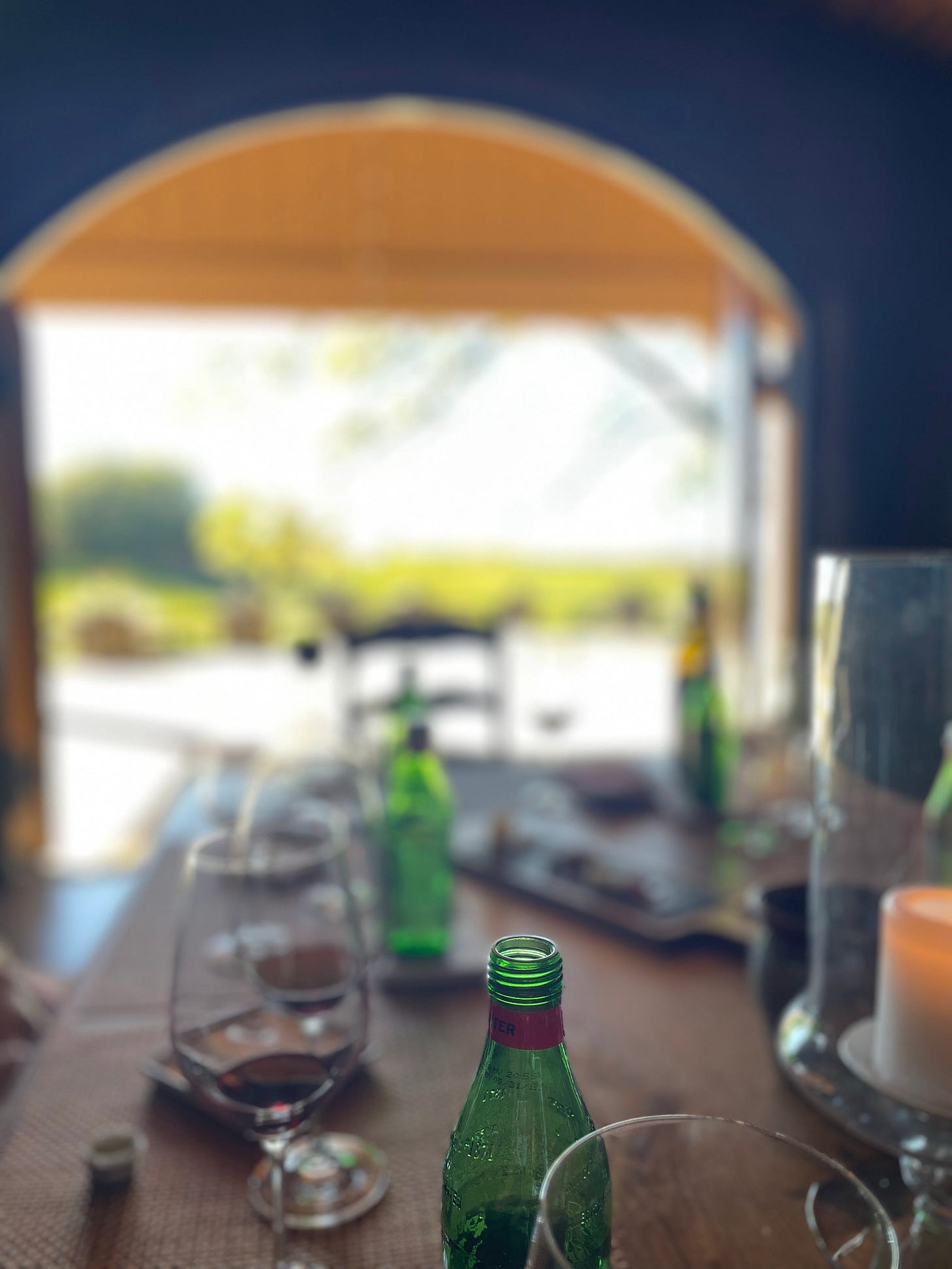🤯Unknown Unknowns #73 - In Vino Veritas
I don’t like wine. It’s sour, overpriced, and everyone has an (unwarranted) opinion on it. Frankly, I’d rather drink water. But I found myself in Napa this past weekend, a get-together for college friends who hadn’t seen each other in years.
I looked forward to hanging out with my friends but wasn’t looking forward to pretentious proclamations on wine.
As we hopped across different wineries, the vineyard hosts explained the different notes and flavors of the different wines. I, as usual, thought it was ostentatious swill. Notes of chocolate? It takes like grapes that have sat in a barrel for too many months.
But one host brought up that merlot, a type of grape, grows better in clay than in dryer soil. This is because the roots of merlot vines don’t go as deep, so they need wetter dirt. Another grape, Cabernet Sauvignon, has extensive root systems and needs dryer soil because its roots will rot in wetter soil. The different types of soil in each vineyard dictate the proportions of the types of grapes they use. While I don’t appreciate the difference in taste, I can still tell the difference between grapes.
I went from not caring about how the wine tasted to wondering why the wine tasted.
My interest was sparked, and I started asking questions, not about wine but about grapes.
Wineries need to maximize the conditions and soil that they have. I learned why some fields were terraced and that you can change the length of the growing season by planting grapes in the shade. You can mitigate the effect of soil by grafting different grape varietals on different rootstocks. There was a method to the seemingly mundane.
Even though I wasn’t interested in the end product, how the end product is made was incredibly interesting.
The weekend turned from seeing my friends in a pleasant but boring environment into an interesting experience in its own right. Anything can become interesting by asking the right questions.
On Excellence
The tours in Napa are really marketing disguised as wine education disguised as sensual indulgence. The wineries pour wine down your throats under the pretense of educating you while actually trying to get you to buy wine.
At Blankiet, the marketing pitch was excellence. The host constantly reiterated the message that you only have so much time, you should only consume the best. The best being, of course, Blankiet wine. While self-serving, there is truth to this that I've realized as I've gotten older.
When I was younger, I would take anything that was free. Free t-shirts in college, free pizza, free giveaways. Why not take it all if it's free? But there are always costs - opportunity costs and storage costs. There is a real need to curate, to sift and separate the signal from noise. This goes for information, but also the people you hang out with and the activities you do. Life is too short to waste. There's always a cost, most of the time money is just the most obvious one.
Quote of the week:
“The scientist is not a person who gives the right answers, he's one who asks the right questions.” - Claude Levi-Strauss
Questions, suggestions, complaints? Email me at [email protected]. Feedback welcome.
If you enjoyed this newsletter, please share it with a friend or two. And feel free to send anything you find interesting to me!
Leaving you in peace,
Chris


The world of wine can be a world of wonder. I'll keep this mind the next time I go wine tasting.
I'm not a wine person, but I recommend my friend Brian's newsletter on wine. Here's a good issue about Napa https://wineblueprint.com/napa-4-questions-before-you-go/.
My fave issue of his was about how to gift wine. https://wineblueprint.com/how-to-give-wine-as-a-gift/
Unpretentious and totally common sense advice for me.